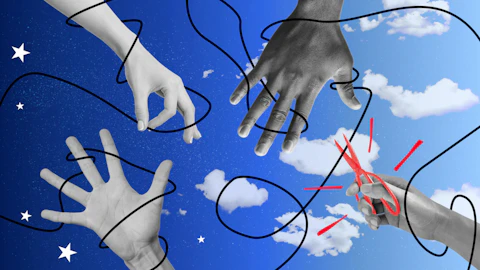My mother has experienced what I have only feared for the over 20 years we have been in the U.S. She lives being separated from her family—unable to see her parents.
Read the rest of COURIER’s What Is Freedom series here.
When I was younger, I remember showing my mother her hometown on Google Maps. I would use the satellite feature, and my mother would point out specific streets in Valle de Santiago, Guanajuato. She told me stories about her life in Mexico, and we listened carefully—trying to imagine and picture her there. These moments seemed like her only way to conjure memories of her home.
Through phone calls and WhatsApp messages, my mother stays connected to her home. But as time passes, I wonder if it is getting harder for her. When my mother speaks to her parents, she hears the loneliness and exhaustion in their voices—wondering when she will see them again. After arriving in the U.S. more than 20 years ago, and living and working here ever since my parents have never seen their family.
I think I understand my mother’s pain, though. She has experienced what I have only feared for the over 20 years we have been in the U.S. She lives being separated from her family—unable to see her parents.
When I speak to my abuelitos on the phone, they remind me of the day we left. I was too small to remember them, but my mother tells me about the day we said goodbye. My abuelitos dropped us off at a bus station—my mother hoping she will see them again soon.

On the phone, I tell them we will see them soon, and they say they hope so, too—before it’s too late.
There’s a knot in my throat. I don’t know when we will see them again.
For my parents and siblings and I, we used to think that obtaining papers was always the end goal.
As an illegalized immigrant with DACA, I thought being able to work without the risk of deportation meant freedom. However, now I see the precarity of our status is more deeply rooted than this. The act of creating borders is synonymous with white supremacy, and the violence inflicted on indigenous communities in its name. Papers alone cannot address the violence and pain that exist in society today.
When I envision freedom, I see a world where people like my mother and father can reunite with their families. Where borders do not exist, and families are not separated. Where we celebrate people like my parents and their parents.




